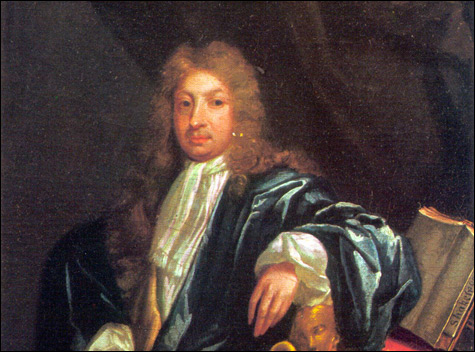
John Dryden |
A city is small geography — even the City on the Hill, the Athens of America — to merit a poet laureate. The position descends from medieval English courts where minstrels adept at verse had a place in the retinue, and kings were patrons to poets. Chaucer, Spenser, and Ben Jonson enjoyed such patronage. And John Dryden was the first to be given the actual title and the laurel crown that goes with it. That was in 1670, when Boston was 40 years old.
In 1986, Robert Penn Warren became the first American poet laureate; Robert Pinsky has since served three terms in the position. There have been state poet laureates, too; most prominent of late was Amiri Baraka of New Jersey who got himself canned for a poem he wrote about September 11. Of course, Brooklyn has had a laureate for some time. But Brooklyn is huge and has a population of four million, higher than that of a dozen American states.
Suddenly, though, the call went up in Boston, the city council met to discuss the position, the Boston Globe ran an article, and so did USA Today. It’s a small bee in the collective bonnet, yet it has made its presence known. Last week, Mayor Menino gave the green light to award one lucky poet with the newly created title.
In 23 years the city will celebrate its 400th birthday. Perhaps anxiety, a tremor felt but as yet unacknowledged, prompted the idea of getting a poet in place who might be followed by another poet who might write a commemorative ode to the Hub. In other words, the need to establish a tradition, one to be called on when needed. A bad idea? Yes, if the poet is expected to show us how good for us poetry is. But if John Wieners were alive and the powers that be had the wit to honor him, or if Lowell’s “a savage servility slides by on grease” had this city’s stamp on it . . . maybe we would be worthy of such an adornment.